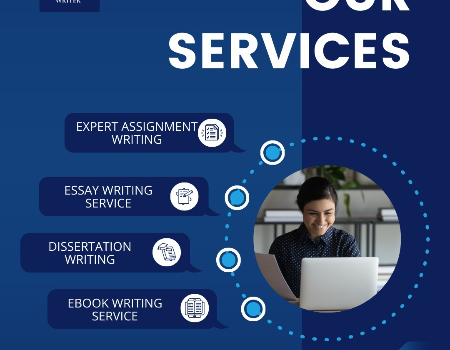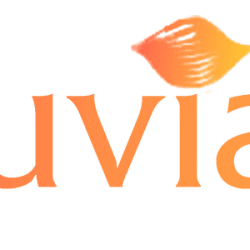Ethical Content Creation: Why Plagiarism Matters Beyond Academia
| Tỉnh/Thành phố | Bà Rịa - Vũng Tàu |
| Quốc gia | United Kingdom |
| Region | San Francisco Bay Area |
 |

image x
In today’s content-driven digital landscape, originality is not just a virtue—it’s a necessity. While discussions around plagiarism are often confined to academic institutions and student assignments, the issue stretches far beyond the classroom walls. In content marketing, freelance writing, journalism, blogging, and even business communications, ethical content creation plays a vital role in maintaining credibility and trust.
If you’re looking for expert help in crafting original content, exploring a professional assignment solution can ensure your work meets high ethical standards.
Mục lục
What is Ethical Content Creation?
Ethical content creation refers to producing written, visual, or multimedia materials that are honest, original, and properly cited when referencing others’ work. It means avoiding plagiarism, respecting copyright laws, and upholding integrity by giving credit where it’s due.
Unlike in academia—where plagiarism might lead to a failed assignment or academic probation—in business and digital media, plagiarism can result in reputational damage, legal consequences, and loss of audience trust.
Why Plagiarism Isn’t Just a “School Problem”
Many associate plagiarism primarily with schoolwork or student misconduct. While it is heavily monitored in academic environments, this mindset creates a false sense of immunity in professional or creative spaces. The truth is that plagiarism is an ethical violation in any industry that involves content creation. Here’s why it matters outside the academic bubble:
1. Brand Credibility Depends on Originality
A company’s online presence relies heavily on content—blogs, articles, social media posts, and product descriptions. If this content is plagiarized, it dilutes brand authenticity. Worse, getting caught can destroy consumer trust. For writers and marketers, ethical creation ensures that what you share is both credible and brand-safe.
2. Search Engine Penalties for Duplicate Content
Search engines like Google favor original content. When a website republishes or duplicates content from elsewhere, it risks getting penalized or even de-indexed. This has direct implications for traffic and SEO rankings. Plagiarism isn’t just unethical—it’s bad for business.
3. Legal Repercussions in the Professional World
Stealing content can lead to copyright infringement lawsuits. Writers, bloggers, and companies have faced legal actions over using text or images without permission. Even “accidental plagiarism” isn’t a strong defense when rights have been violated. Ethical content creation minimizes these risks and keeps businesses compliant with intellectual property laws.
4. Loss of Professional Reputation
Imagine a freelance writer or a digital marketer caught plagiarizing. Their reputation could take a severe hit, making it difficult to find future clients or employment. Upholding ethical standards in content creation safeguards long-term career credibility and success.
Maintaining Ethics in Creative Work
Ethical content starts with a few consistent habits: researching responsibly, paraphrasing ideas thoughtfully, and using plagiarism detection tools. Writers should aim to add value rather than recycle existing information.
Moreover, services like help with MATLAB assignment or writing assistance platforms not only provide guidance but often include originality checks as part of their process. This ensures students, professionals, and content creators alike stay on the right side of ethical practice.
Bridging the Gap Between Academic Integrity and Professional Ethics
The core principle of not passing off someone else’s work as your own is the same whether you’re submitting a university essay or publishing a company blog post. Yet, the tools, motivations, and consequences vary.
For instance, a student might use a research essay writing service to get help structuring their arguments and citing sources correctly. Similarly, businesses might outsource content creation to experts who can guarantee originality and relevance to the brand voice. The common thread? A commitment to creating valuable, plagiarism-free content.
Conclusion
Plagiarism isn’t a crime limited to students—it’s an ethical issue that transcends industries. In an age where information is abundant but attention is limited, producing original, authentic content is key to standing out. Whether you’re a student, freelancer, marketer, or entrepreneur, ethical content creation should be a cornerstone of your work. Upholding these values not only protects your reputation but also fosters a culture of trust and integrity in the digital space.
Liên hệ người đăng tin
Contact Owner
You must be logged in to inquire about this ad.
Text link
Bài viết gần đây
- Vegas79 – Địa điểm cá cược thể thao hiện đại cho người chơi yêu thích trải nghiệm đỉnh cao
- 6 phút ago
- Khác
- Vietnam
- 2 views
- 1.000
- Dự án Alluvia City – Không gian sống xanh cho thế hệ hiện đại
- 7 phút ago
- Nhà đất
- Toàn quốc, Vietnam
- 4 views
- 0
- Giá cửa vòm nhựa composite tại An Giang
- 51 phút ago
- Thiết kế nội, ngoại thất
- Đắk Nông, Toàn quốc, Vietnam
- 9 views
- 4,500,000
Xem nhiều nhất trong ngày
- Trump Miami Development Approved: What This Means for the Area (93 views)
- ARBOR SP-151C-1N305 – Panel PC công nghiệp 15.6″ (74 views)
- cửa thép vân gỗ tại quận 2 (59 views)
- Điện trở nhôm đúc, điện trở vòng sứ, điện trở năng lượng mặt trời (56 views)
- Quality Dissertation Writing at 50% Off – Grab Now! (52 views)
- Chiết xuất gạo lứt lên men Biogreen bí quyết cho làn da trắng sáng (42 views)
- DAMAC Properties – The Pinnacle of Luxury Living in Dubai (32 views)
- Best Law Essay Writing Service UK for Outstanding Results (31 views)
- Post Ads and Watch Your Business Flourish! (31 views)
- How to Contact British Airways Customer Service: A Complete Guide +1 888326 1024 (28 views)
- Đánh Giá Chi Tiết: Review Niềng Răng Cần Thơ Tốt Nhất (27 views)
- Skip the Traps: 5 Reliable PoE 3.26 League Starter Builds That Won’t Bust Your PoE Currency Budget (16 views)
- MIAMI VICE STUNT TEAM JACKET (16 views)
- NovaTV AI Review 2025 – 30% OFF Coupon Code (14 views)
- Sau nâng mũi bao lâu mới thì lành? (14 views)
Share Ad
Bài viết mới
- Rao Vặt Miễn Phí – Đăng Tin Nhanh Chóng, Hiệu Quả | RaoVatOnline
- Free Classifieds – Post Ads Easily on RaoVatOnline.org
- Rao Vặt Miễn Phí TP HCM – Đăng Tin Nhanh, Bán Hàng Dễ
- Đăng Tin Miễn Phí – Giải Pháp Tiết Kiệm Cho Người Mua Bán Hiện Đại
- Free Classified Ads USA: Best Sites to Buy & Sell Locally (2025 Guide)



Comments